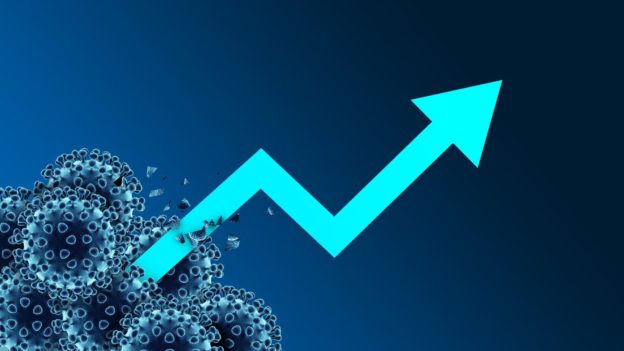With the recession officially ending in April 2020, we’re now 16 months into the recovery and the contours of the post-pandemic economy have taken shape.
Why it matters: While the coronavirus continues to infect 100,000 new Americans every week, it’s no longer driving the course of the economy.
- The Delta variant shows no signs of slowing growth in GDP or consumer spending, both of which are already above their pre-pandemic levels.
- Corporate earnings and the stock market are at record highs, while Americans collectively are wealthier than ever.
- Jobs, however, are a different matter.
The big picture: Fiscal policy in the United States has moved on. Emergency pandemic relief is coming to an end; long-term infrastructure investment is now Treasury’s top priority.
- The Federal Reserve’s carefully-considered official language now says that “the path of the economy continues to depend on the course of the virus” — a downgrade from the prior statement, which said that “the path of the economy will depend significantly on the course of the virus.”

Yes, but: The pandemic’s lasting impact on the jobs picture is clear: A lot of industries have lost hundreds of thousands of jobs, many of them permanently, while very few have gained.
- Total employment will eventually recover to its pre-pandemic level — Wells Fargo senior economist Sarah House sees that happening in late 2022 or early 2023. But the headline unemployment rate might never get back down to the 3.5% we saw pre-pandemic.
What they’re saying: “The pandemic has been transformational in the world of work,” ADP chief economist Nela Richardson tells Axios’s Sam Ro. “There are parts of the labor market that will not come back in the same way.”
- “Like a tornado,” she adds, the virus has skipped certain areas and flattened others. “It’s really picked and chosen how it devastated people.”
Entire industries, like movie theaters, are permanently changed. Studios took advantage of the pandemic to pivot to a subscription-based streaming model — a model that Wall Street has endorsed.
- Being able to stream movies at home on the same day that they’re released in theaters — as Disney recently did with Black Widow — is going to be the new normal.
- Lower-paid industries like food service saw an exodus of jobs over the course of the pandemic, and many of those jobs will never come back. Instead, they will be replaced by technology such as ordering from phones instead of servers.
The bottom line: Recovery does not mean reverting to how things were before the pandemic.
https://www.axios.com/post-pandemic-economy-has-arrived-61437db6-f504-4969-80dd-b015bbb55b83.html





